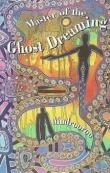 2160273788240478638.jpg
2160273788240478638.jpg
 2160273788240478638.jpg
2160273788240478638.jpg
'... Jangamuttuk is an ageing Aborigine shaman whose people have been relocated to an island off the Australian coast under the control of a former bricklayer turned missionary. Jangamuttuk helps them come to terms with the invaders' presence and, at the same time, offers them a restorative vision of community by entering into "the dreaming," a magical time every bit as real as conventional reality. ...' (Source: Amazon website)
'The article reviews the controversial 'Mudrooroo Affair' with reference to unpublished work by Mudrooroo in which he comments on the public debate about his rights to define himself as Aboriginal and, by extension, have his work credited as Aboriginal. Such work makes it pertinent to review Mudrooroo's creative output since 1965 as literary experiments with life writing and to reconsider Mudrooroo's many literary 'performances' from this perspective. They are not only explorations of Aboriginal identity politics over,- the last five decades, but may also be seen as a far more personal investment in exploring Aboriginal identity through a progressively shifting but interrelated series of subjectivities that reflect the writer's own experience and inform his claim to Aboriginality.' (Publication summary)
 The Circle and the Spiral : A Study of Australian Aboriginal and New Zealand Maori Literature
The Circle & the Spiral
Amsterdam
New York (City)
:
Rodopi
,
2004
Z1106371
2004
multi chapter work
criticism
The Circle and the Spiral : A Study of Australian Aboriginal and New Zealand Maori Literature
The Circle & the Spiral
Amsterdam
New York (City)
:
Rodopi
,
2004
Z1106371
2004
multi chapter work
criticism
From publisher's blurb: 'In Aboriginal and Maori literature, the circle and the spiral are the symbolic metaphors for a never-ending journey of discovery and rediscovery. The journey itself, with its indigenous perspectives and sense of orientation, is the most significant act of cultural recuperation. The present study outlines the fields of indigenous writing in Australia and New Zealand in the crucial period between the mid-1980s and the early 1990s - particularly eventful years in which postcolonial theaory attempted to "centre the margins" and indigenous writers were keen to escape the particular centering offered in seach of other positions more in tune with their creative sensibilities. Indigenous writing relinquished its narrative preference for social realism in favour of traversing old territory in new spiritual ways; roots converted to routes.' ... The Circle and the Spiral looks for 'locally and culturally specific tracks and traces that lead in other directions than those catalogued by postcolonial convention. This agenda is pursued by means of searching enquiries into the historical, anthropological, political and cultural determinants of the present state of Aboriginal and Maori writing (principally fiction).'